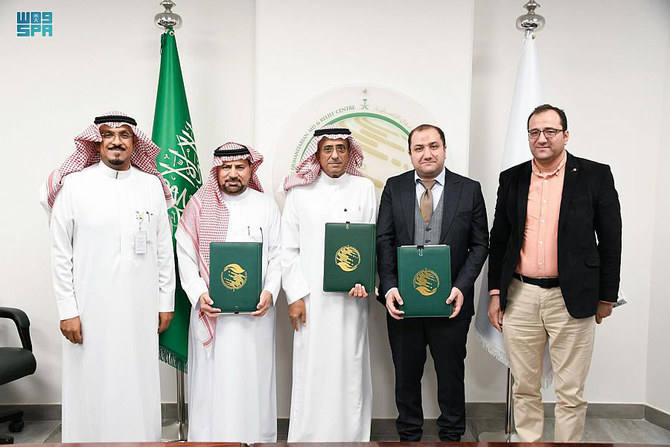RIYADH: Saudi Arabia’s King Salman Humanitarian Aid and Relief Center, also known as KSrelief, on Thursday signed three agreements with the International War and Disaster Victims Protection Association for the implementation of health projects in Somalia and Yemen, and for Syrian refugees in Lebanon.
The first agreement includes plans for a dialysis center at Banadir Hospital in the Somali capital Mogadishu, which will benefit 280 people. It will provide specialized, life-saving services for patients suffering from renal failure. It will also help to improve the overall level of health services and infrastructure in Somalia.
The second agreement relates to the implementation of the seventh phase of a prosthetics and rehabilitation center in Marib province in Yemen, which will benefit 3,649 individuals. It aims to provide prosthetic limbs for people with special needs, functional and physical rehabilitation services for people with prosthetic limbs, and outpatient care and community services. It will also help to enhance the professional and scientific capabilities of medical and technical staff, prepare them to deal with specific types of cases, and limit the migration of specialized medical and technical cadres.
The third agreement is for the third phase of a project to develop healthcare services for Syrian refugees and the host community in the town of Arsal in the Lebanese governorate of Baalbek. It will benefit 75,000 people.
It aims to provide healthcare services, psychosocial, social and nutritional support, as well as participating in routine vaccination campaigns and providing free medications for Syrian refugees and Lebanese citizens.
The project will also help to develop the national health information system and data management, support existing national programs, and improve the efficiency of monitoring and referrals. It will participate in official campaigns to raise awareness of health and nutritional matters, promote personal and public hygiene, limit the spread of epidemic, contagious and communicable diseases, and measure the weight and height of children to help identify youngsters who need nutritional support.
The project will provide psychological support to children, in particular those with motor or sensory disabilities, and help them to access specialized centers where they can obtain the medical help and support they require.
The projects reflect the desire of Saudi Arabia, as represented by KSrelief, to support Syrian refugees in Lebanon and improve their living conditions, in keeping with the Kingdom’s humanitarian efforts for all countries and peoples in need.






















